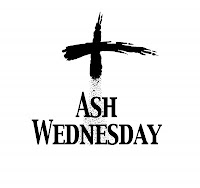I love this thought from Bernard Bro: perhaps the best definition [of an adolescent] is that of someone who has not yet experienced her limitations, and therefore has not had to accept them.
It is true. Until I experience my limitations, I have not grown up. Probably my biggest challenge in life will be accepting and dealing with such humanness.
We are not taught about such things. If anything, we are told that we can be anything we want to be. But that is just not so. Every single one of us has limitations in some field. The secret is, those limitations need not make us less; they can be stepping stones not only to a greater maturity, but to a more authentic and sincere form of prayer.
Bro says Prayer brings us back to what is most authentic in our quest for happiness...prayer makes us free...prayer...must teach us every day of our need for God.
Our need for God. That is the reality of life. If I should live without feeling any need, it is most likely that I would become satisfied with life as is. It is when I face limitations, when I am needy, that I pray with a humble heart.
Limitations need not be defeating. For in authenticity, we learn the truth.






























